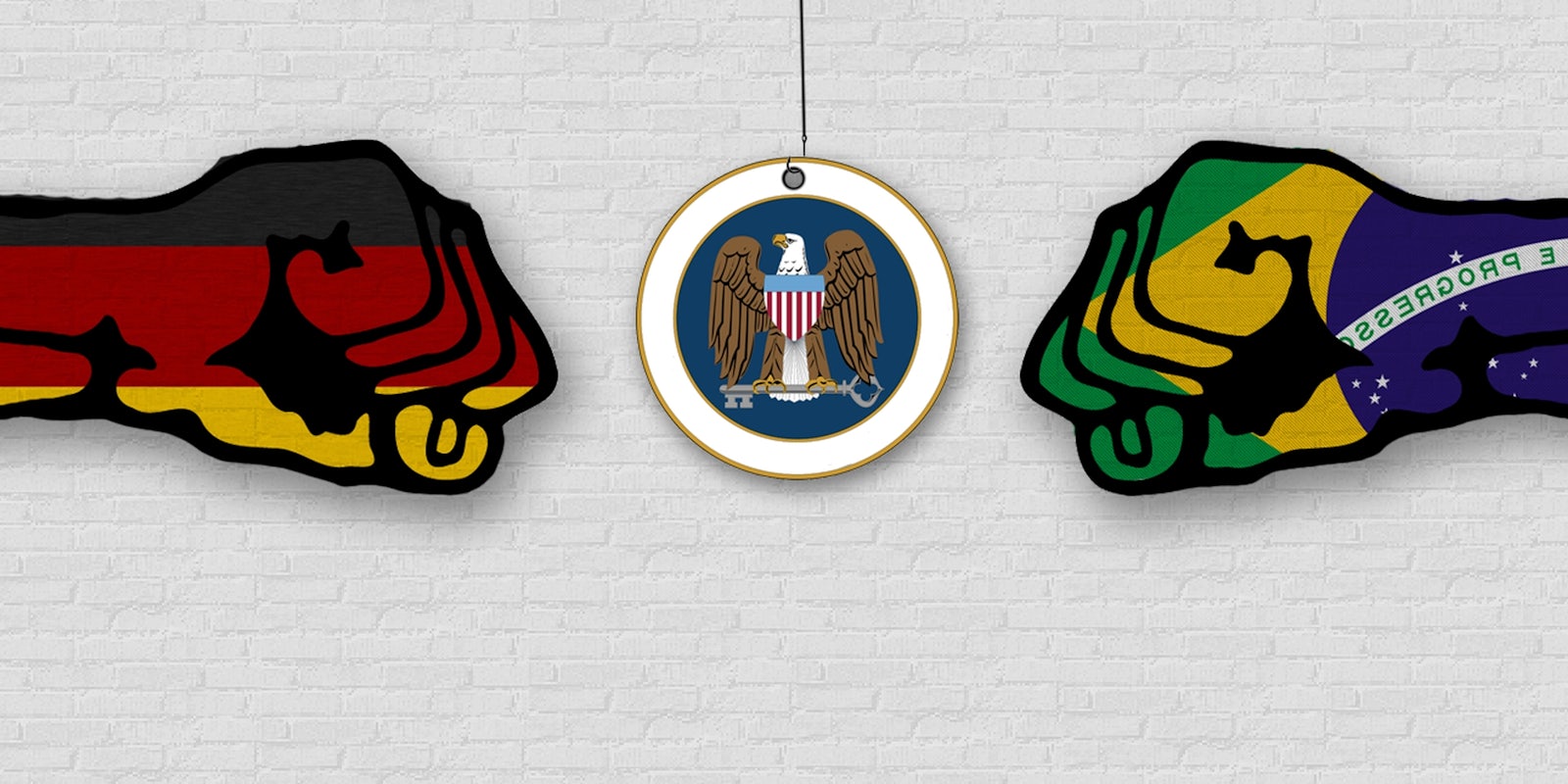Germany and Brazil, two of the nations hit hardest by the National Security Agency‘s Internet and telephone spying programs, have created a draft resolution for the United Nations to stand against such programs.
The text now stands before a U.N. General Assembly committee devoted to addressing online privacy.
The resolution doesn’t cite the NSA by name. That’s probably appropriate, since plenty of leaked documents show that the comparable agencies in Australia, Canada, New Zealand, and the U.K.—the “Five Eyes“—work closely with the NSA, and a host of other countries apparently share their own citizens’ call records with the agency. U.N. diplomats, however, say it was clearly prompted by documents revealed by former NSA contractor Edward Snowden, according the Guardian.
The NSA has been criticized for its ability to tap into the actual Internet communications of nearly any non-U.S. citizen with programs like XKeyscore, which allow it access to the Internet backbone, and PRISM, which allows it to expedite stored user information from American companies like Google. In theory, it would be against U.S. law for the NSA to acquire such information on Americans without a court order—though it does collect the metadata of American communications—but there’s no such restriction on it tracking rest of the world.
However, the U.N. views things a little differently. Part of the new resolution would reiterate existing U.N. claims. Article 12 of the Universal Declaration of Human Rights, adopted by the U.N. in 1948, provides that “No one shall be subjected to arbitrary interference with his privacy, family, home or correspondence,” and that “Everyone has the right to the protection of the law against such interference or attacks.” In 2012, the U.N. passed a resolution clarifying that the UDHR applies online.
The draft resolution goes further, though, and calls upon all U.N. member states:
“QQTo take measures to put an end to violations of these rights and to create the conditions to prevent such violations, including by ensuring that relevant national legislation complies with their obligations under international human rights law.”
Germany and Brazil are likely, at least according to Snowden documents leaked so far, the NSA’s biggest targets in their respective continents. Dozens of German cities have erupted in protest several times since the Snowden leaks in June, and other documents indicate that the NSA spies on a Brazilian state-owned oil company, despite the agency’s insistence it doesn’t engage in economic espionage. And both countries have expressed outrage at allegations that the NSA spied on their respective heads of state.
At least 19 other nations participated in some stage of drafting the resolution, according to Foreign Policy. None of the nations attached to the resolution are members of the Five Eyes nations.
H/T Guardian | Illustration by Fernando Alfronso III


